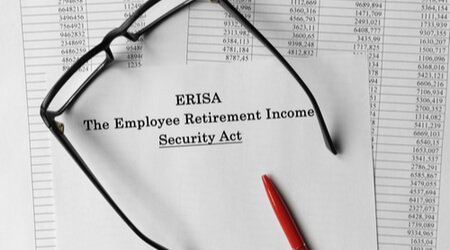
ERISA applies to almost every single employer in the private sector. If you work for an employer and get benefits, you are likely covered by ERISA. This is true even if you are the only employee. It is true no matter how your employer’s business is structured, and it is true even if your employer is a nonprofit.
ERISA also covers many different types of benefits, not just pensions. Group health insurance plans, group disability benefit plans and even employer-provided business travel insurance or scholarship funds can all be regulated by ERISA.
ERISA benefits may not be as broad or as comprehensive under certain circumstances. ERISA does not apply in every single situation. Because ERISA is so broad, there are very few exemptions.
The ERISA exemptions that do exist include:
- Insurance policies and benefits issued by government employers or entities. This includes local government, city government, state government and the federal government. If you work for the government in any capacity, your pension and benefits are likely not covered by ERISA. Teachers and employees of state colleges or universities, for example, are likely not covered. Workers at state parks or public parks; police officers; those who work at fire departments; and those who work in public transportation are also among those who are generally not covered by ERISA.
- Insurance policies and benefits issued by churches or religious organizations. This can also include certain nonprofit organizations that are run by churches, even though most nonprofits are covered under ERISA.
- Insurance policies that you purchase on your own. If you buy an insurance policy yourself, including a health insurance policy or a disability or life insurance policy, then ERISA likely does not apply.
- Insurance policies issued only to business owners. If you own a business and have an insurance policy that is not issued to your employees and that your employees do not participate in, then the policy is likely not covered by ERISA.
- Insurance policies not endorsed or supported by employers. If you and your co-workers purchase an insurance policy using funds deducted from your checks or pooled together with no contributions from your employer, then this policy is probably not covered under ERISA as long as your employer doesn’t sponsor or endorse the policy.
These are the key exemptions to ERISA policies. There could be a few other limited situations where ERISA does not apply, but the general rule is that almost every benefits package and pension plan that is supported by or offered by any type of employer is covered under ERISA.
Making Non-ERISA Claims
When your benefits plan is covered by ERISA, then you must follow ERISA guidelines to seek remedies. This can restrict your ability to take other types of legal actions, including making a claim directly against an insurance company.
In many cases, the damages that you can obtain when making a claim directly against an insurance company are broader than those available under ERISA. This is because you may be able to make a bad-faith insurance claim against an insurer that unreasonably denied you benefits.
Every insurance contract has something called an “implied covenant of good faith and fair dealing,” which is a complex legal way of saying that it is assumed people go into contracts with the intent to be fair and to live up to their end of the bargain. When you pay insurance premiums, you live up to your promises, and it is assumed and required that the insurance company will also live up to its duty to pay out a fair claim when you suffer a covered loss or injury.
If an insurance company fails to live up to the deal and denies you benefits unfairly and unreasonably, it is said to have acted in bad faith. A bad-faith insurance claim is a tort lawsuit, which means it is more similar to a personal injury lawsuit than to a breach-of-contract claim.
The damages available in a bad-faith insurance action could exceed the policy premiums (the money you paid in) and could exceed coverage limits (the maximum insurance coverage you bought). In fact, the damages in a bad-faith insurance claim could include punitive damages.
Questions About ERISA Coverage and Exemptions? Our Law Firm Can Help
You should consult with a South Carolina ERISA attorney to determine if your claim is covered in the event that you are denied promised insurance, pension or employment benefits.
At Joye Law Firm, we handle both ERISA claims and non-ERISA claims. In any situation where you have not received benefits you deserve and are entitled to, our attorneys are here to help you. For a free claim evaluation and consultation, call Joye Law Firm today at (888) 324-3100 or fill out our online contact form.



























